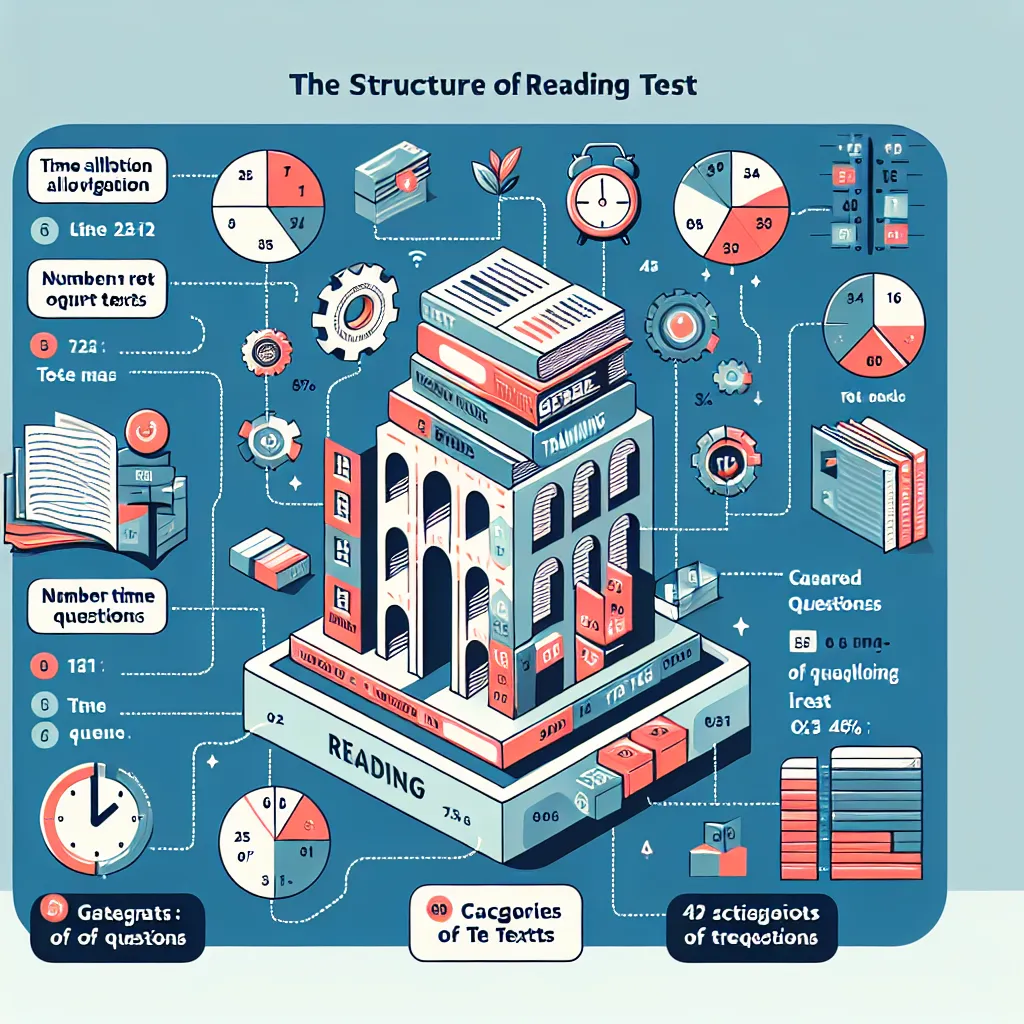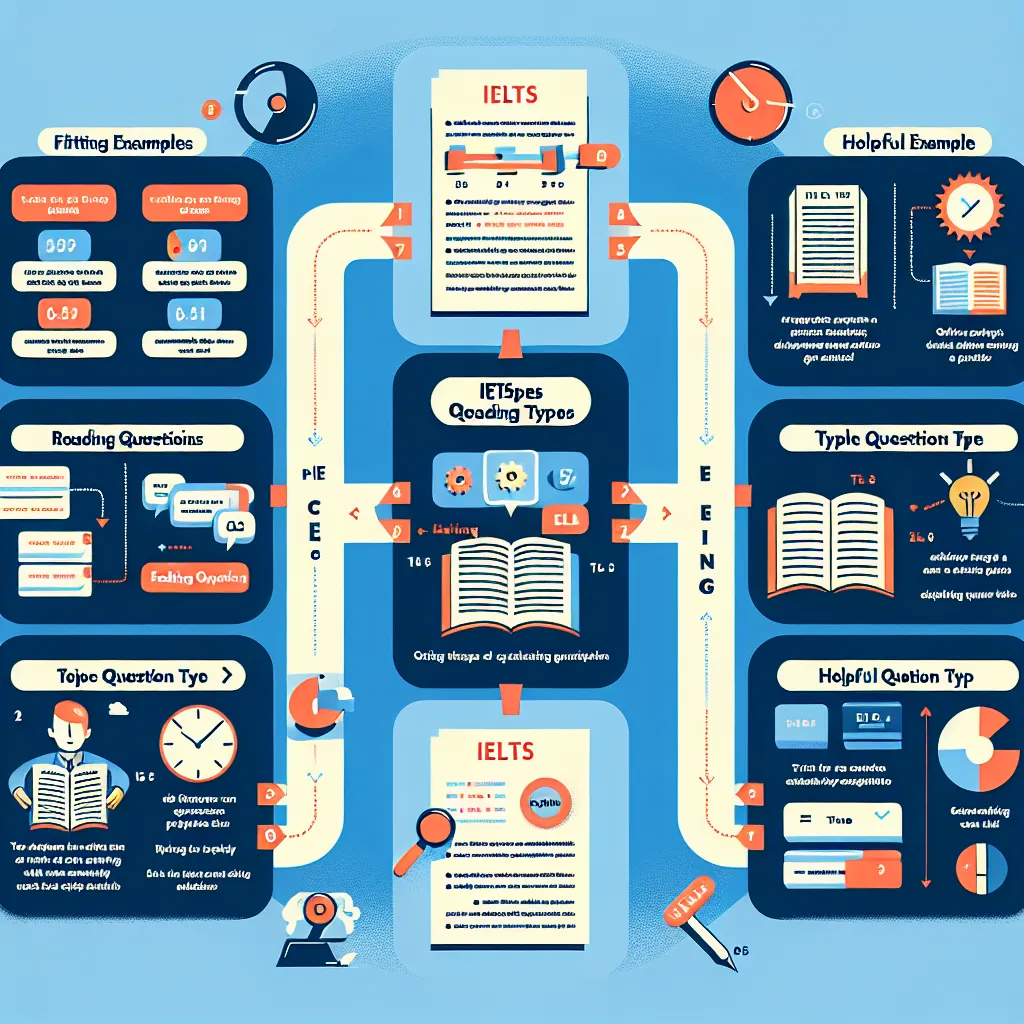Are you gearing up for the IELTS General Training Reading test? You’re in the right place! This comprehensive guide will walk you through the essential steps to prepare effectively for this crucial component of the IELTS exam. Whether you’re a beginner or looking to enhance your skills, we’ve got you covered with expert tips, strategies, and resources.
Understanding the IELTS General Training Reading Test
Before diving into preparation techniques, it’s vital to understand what the IELTS General Training Reading test entails. This section of the exam assesses your ability to read and understand various types of texts you might encounter in everyday life or work situations.
Key Features of the Test
- Duration: 60 minutes
- Number of questions: 40
- Three sections with increasing difficulty
- Text types: Advertisements, manuals, notices, newspaper articles, and more
- Question formats: Multiple choice, short answer, matching, true/false/not given, etc.
 IELTS General Training Reading Test Overview
IELTS General Training Reading Test Overview
Essential Preparation Strategies
1. Familiarize Yourself with Test Format
Understanding the test structure is crucial for success. Spend time reviewing sample tests to get comfortable with the layout and question types.
- Practice with official IELTS sample papers
- Take timed mock tests to simulate exam conditions
- Analyze different question formats and develop strategies for each
2. Improve Your Reading Speed
Time management is critical in the IELTS Reading test. Work on increasing your reading speed without sacrificing comprehension.
- Set reading goals: Start with 200 words per minute and gradually increase
- Practice skimming and scanning techniques
- Use a timer while reading to track your progress
3. Expand Your Vocabulary
A robust vocabulary is essential for understanding diverse texts quickly.
- Learn new words in context through extensive reading
- Create a vocabulary journal and review regularly
- Focus on academic and work-related terminology
- Use flashcards or vocabulary apps for daily practice
4. Develop Active Reading Skills
Engage with the text actively to improve comprehension and retention.
- Predict content from headings and subheadings
- Identify main ideas and supporting details
- Practice summarizing paragraphs in your own words
- Ask yourself questions about the text as you read
Targeted Practice Techniques
1. Section-Specific Strategies
Each section of the IELTS General Training Reading test requires a slightly different approach.
Section 1: Social Survival
- Focus on quickly identifying specific information
- Practice with texts like notices, advertisements, and timetables
- Improve your ability to locate and extract key details
Section 2: Workplace Survival
- Enhance your understanding of work-related documents
- Practice with job descriptions, company policies, and training materials
- Develop skills in understanding the main ideas and specific details
Section 3: General Reading
- Build stamina for longer, more complex texts
- Practice with newspaper articles, magazines, and academic-style writings
- Improve your ability to understand opinions, arguments, and implied meanings
2. Question Type Mastery
Different question types require specific strategies. Practice each type extensively:
- Multiple Choice: Eliminate wrong answers and manage time effectively
- True/False/Not Given: Look for exact matches or contradictions in the text
- Matching: Use keywords to quickly locate relevant information
- Short Answer: Practice extracting precise information within word limits
 IELTS Reading Question Types
IELTS Reading Question Types
3. Time Management Drills
Effective time management is crucial for completing all questions within the allotted 60 minutes.
- Allocate specific time limits for each section (e.g., 20 minutes per section)
- Practice transferring answers to the answer sheet quickly and accurately
- Develop a strategy for difficult questions (e.g., mark and return later)
Advanced Preparation Tips
1. Read Widely and Regularly
Expose yourself to a variety of English texts to improve comprehension and speed.
- Read English newspapers and magazines daily
- Explore diverse topics: science, technology, culture, and current affairs
- Challenge yourself with academic journals and professional publications
2. Analyze Text Structures
Understanding how texts are organized can significantly improve your reading efficiency.
- Identify topic sentences and supporting details
- Recognize transition words and phrases
- Practice outlining articles to understand their structure
3. Develop Critical Reading Skills
Go beyond surface-level understanding to engage with texts more deeply.
- Identify the author’s purpose and tone
- Distinguish between facts and opinions
- Practice making inferences based on the information provided
4. Use Authentic Materials
Supplement your study with real-world English materials.
- Read product manuals, job advertisements, and company newsletters
- Study government publications and official notices
- Explore online forums and blogs related to work and daily life
Common Pitfalls to Avoid
- Spending too much time on difficult questions
- Neglecting to read instructions carefully
- Failing to transfer answers accurately to the answer sheet
- Not managing time effectively across all three sections
- Overlooking the importance of vocabulary building
Next Steps in Your IELTS Preparation Journey
Now that you have a comprehensive understanding of how to prepare for the IELTS General Training Reading test, it’s time to put this knowledge into action:
- Create a study schedule that incorporates all the strategies mentioned above
- Take regular practice tests to track your progress
- Join IELTS study groups or forums to share experiences and tips
- Consider enrolling in an IELTS preparation course for additional guidance
- Stay motivated by setting realistic goals and rewarding yourself for progress
Remember, consistent practice and a strategic approach are key to success in the IELTS General Training Reading test. With dedication and the right preparation techniques, you can significantly improve your performance and achieve your desired score.
We encourage you to share your own IELTS preparation experiences or ask questions in the comments below. Good luck with your IELTS journey!


